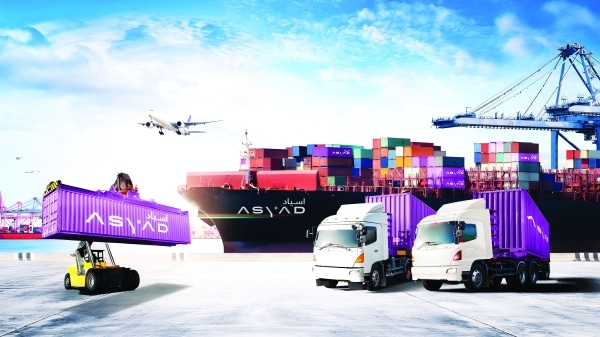Asyad sets hydrogen corridor, net-zero course
Asyad Group Unveils Bold Sustainability Strategy

MUSCAT, AUG 25: Asyad Group, Oman’s integrated logistics provider, has launched an ambitious sustainability plan aimed at achieving net-zero emissions by 2050. This initiative aligns with Oman Vision 2040 and the UN Sustainable Development Goals, focusing on green fuels, digitalization, and the growth of small and medium-sized enterprises (SMEs). A key highlight of the strategy is the proposed liquid-hydrogen trade route from Al Duqm to Amsterdam, marking a significant step in the nation’s logistics expansion.
Strategic Goals and Maritime Expansion
Asyad Group, fully owned by the Oman Investment Authority, operates in maritime transport, ports, and logistics across over 90 regions globally. The company’s new Sustainable Development Impact Disclosure (SDID) outlines three strategic objectives: enhancing integrated logistics, developing the local logistics ecosystem, and incorporating disruptive technologies. These goals are closely tied to several UN Sustainable Development Goals, including those focused on affordable and clean energy, decent work, industry innovation, climate action, and partnerships for the goals.
Central to Asyad’s growth strategy is maritime expansion. The company plans to increase its fleet by adding 30 vessels, building on a baseline of 5 container ships, 23 bulk carriers, 34 product tankers, 22 crude tankers, and 10 LNG carriers by 2025. The dry dock facility aims to complete three shipbuilding projects, 174 ship repairs, and two industrial steel fabrication projects by 2030. To enhance efficiency, Asyad will implement retrofits such as propeller boss cap fins and rotor sails, which are expected to reduce fuel consumption and emissions. Additionally, feasibility studies on e-methanol could position Oman’s ports as a hub for low-carbon molecules.
Hydrogen Corridor and Local Development Initiatives
Asyad’s commitment to decarbonization is evident in its greenhouse gas emissions baseline of 1,847,787 tCO₂e set for 2022, with a target for net-zero emissions by 2050. The public transport operator Mwasalat is also transitioning to clean energy, aiming for a 3% reduction in emissions by 2030, escalating to 34% by 2040, and achieving net-zero by mid-century. The proportion of Asyad’s eco-friendly fleet is projected to rise from 30% in 2023 to 86% by 2033.
A pivotal aspect of this sustainability strategy is the development of a liquid-hydrogen corridor between the Port of Duqm and the Port of Amsterdam. Asyad is in the process of acquiring LH₂ vessels to support this energy transition. If successful, this initiative could create between 70,000 and 80,000 construction jobs and 30,000 to 40,000 support roles by 2030. Complementing this seaborne trade route, Asyad envisions a 1,000-km hydrogen pipeline designed to transport 500,000 tonnes annually, addressing storage and transport needs for various sectors.
On the trade facilitation front, Asyad is focusing on multi-modal, low-carbon logistics and AI-driven route optimization while expanding renewable-powered green warehousing. The SDID highlights significant operational baselines, including handling 4.6 million TEUs in 2023 and exporting 33.5 million tonnes of general cargo through its ports. Asyad aims to extend its network beyond the current 90 global destinations and build on a $2.7 billion contribution in foreign direct investment associated with its free zones in Suhar, Salalah, and Al Duqm.
Local value creation is integral to Asyad’s strategy. Through its Vendor Development Programme, the company is committed to connecting SMEs with logistics contracts and enhancing their technical capabilities. In 2023, Asyad awarded contracts worth approximately RO 38 million (around $98.7 million) to local suppliers, with an additional RO 10 million allocated to over 600 SMEs. The SDID sets annual reporting baselines of $98.7 million for local suppliers and support for 600 SMEs. The company also reported the creation of 400 jobs for Omani nationals in 2023, laying the groundwork for further localization efforts.
Asyad’s sustainability initiatives are underpinned by waste-reduction measures, biodiversity protections, and adherence to various quality and safety certifications. The company aims to improve its Logistics Performance Index score from 3.2 in 2023 to 3.8 in the long term, reflecting its commitment to scaling infrastructure and services. Asyad will provide annual updates on its progress, emphasizing transparency as it seeks to balance throughput growth with lower emissions and broader economic participation.
